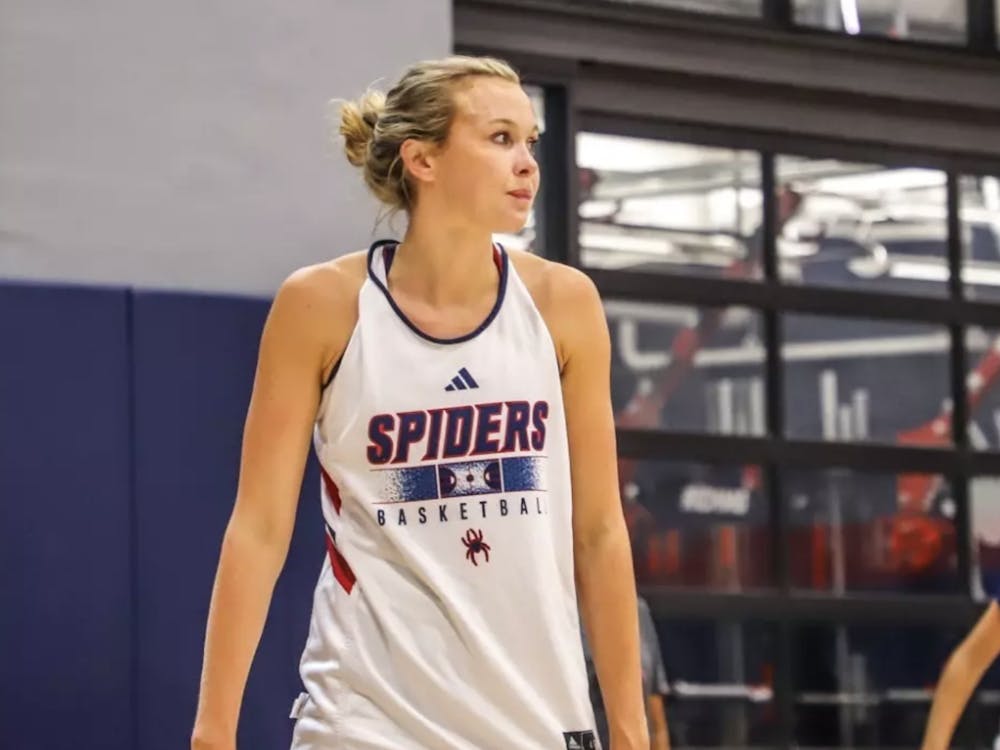University support and camaraderie are important to the continued progress of the University of Richmond club rugby teams, said men's coach Carl Schmitt and women's coach Davis Theakston.
Schmitt said he credited the consistent success of the men's rugby program to the fact that there were a lot of good student athletes at Richmond, and that they responded well to an established program. Schmitt has been coaching the club team since 2001.
The men's club is building its team this semester, as membership is down, and an ideal roster holds at least 40 players, he said.
Even though there are 15 players per team on the field during a match, everyone in rugby gets to touch the ball, Schmitt said. The team does not make cuts, and men of all body types can be trained to play, he said.
Rugby is a full contact sport, but the team's motto is, "No pads, no helmets and no whining," Schmitt said.
As for the women's club, "Girls hit just as hard," junior Catherine Spacciapoli said.
People tend to think that women's rugby is different than men's, but it is just as physical, she said.
The women's team this year is growing in size and ability. Increased competitiveness in matches this season has amped up the commitment and excitement on the team, Spacciapoli said.
"The evolution of this team has been tremendous," Theakston said. He and Shade Willson started coaching the team this semester.
"The university has really gotten behind our program." I can't help but think it's because it's seeing it as a growing sport in the U.S.," Theakston said.
He credits that growth to the fact that rugby was approved for the 2016 Olympics in Rio de Janeiro. The sport was last played in the Olympics in 1924. The U.S. is the defending gold medal team, and the game's presence in the 2016 games has created a larger push in the U.S. for rugby players, he said.
The men's club includes players from England, Spain, Kurdistan and Trinidad. It also includes experienced and new players, Schmitt said.
Enjoy what you're reading?
Signup for our newsletter
Freshman Daniel Miller described the team as "kind of like a frat, but with a better fitness program."
Spacciapoli said that it could be hard to get the right amount of commitment from the women because the team was a sport club, but the club was a fun group of people.
For both men's and women's programs, rugby is a social sport, Theakston said. It is customary for the home team to host a party for the opposition, he said.
The largest difference between other sports and rugby is that the difficulty of the sport brings a level of respect that prevents spectator taunting and negative attitudes toward referees, Theakston said. The toughness of the sport also eliminates any bitterness between teams after the match is played. The level of respect allows for the friendly socialization between teams, he said.
Contact staff reporter Chrissy Wengloski at chrissy.wengloski@richmond.edu
Support independent student media
You can make a tax-deductible donation by clicking the button below, which takes you to our secure PayPal account. The page is set up to receive contributions in whatever amount you designate. We look forward to using the money we raise to further our mission of providing honest and accurate information to students, faculty, staff, alumni and others in the general public.
Donate Now


